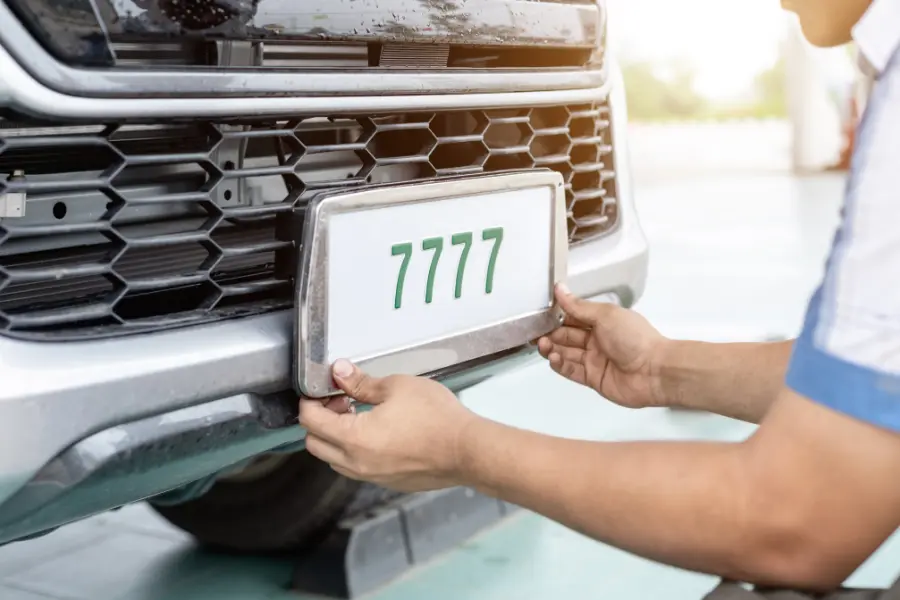Most of us take having a car for granted. Buckling up and driving off is embedded into our daily routines but with energy bills on the rise, interest rates on the increase, and the cost-of-living crises ever prevalent, many Americans are starting to look for alternatives to traditional car ownership or are considering going car-light or even car-free.
If you’re someone who jumps in the car without even thinking about it, leaving it parked up for good will seem like a highly daunting prospect. So what are the benefits of ditching the car and moreover- is it actually possible? Read on to find out!
What your car is actually costing you
We all know that owning a car isn’t cheap, but have you stopped and calculated how much having a car is actually costing you, and what percentage of your earnings is spent on your vehicle?
A report on household budgeting by Value Penguin shows that once you’ve taken into account insurance, gas, maintenance, and tax, plus the cost of the car itself, the annual cost of owning a car comes in at $10,728 with numbers on the rise.
Let’s break this down a little further. $10,728 is around 12% of the average American income. 12% of your wages is a huge amount particularly when you take into account you’ll spend 15% on your actual home. Just a 3% difference between what you spend on a house and a car? That’s a pretty crazy stat!
Doing your bit for The Environment
We’ve long been aware that cars are one of the main sources of greenhouse gas emissions but the more we know about just how damaging car fumes are to the environment and our health, the less likely we’re going to want to get behind the wheel.
Some cities such as New York, London and Paris have decided to put in measures to eliminate cars from their centers. There is of course the option to go electric, but with issues regarding everything from charging points to high running costs, it’s not a viable option for everyone.
Car subscription schemes and car hire
If you do need a car but covering the costs is proving tricky, you might want to look at alternatives to owning your vehicle outright. Some car manufacturers offer all-inclusive subscription schemes whereby you can pay a single monthly fee that covers all the practicalities of driving.
This often makes it easier to manage your finances as you’re not suddenly going to get a large insurance bill or have to suddenly find the cash to cover unexpected maintenance charges. Instead, payments are equally spread throughout the year so you know exactly what will be coming out of your account.
Having a car all year round if you only need it a couple of times a year will be a huge drain on your finances. If you’re going on a longer journey or you’re moving home and need something for the day, a short-term hire as opposed to a subscription could be a more cost-effective option particularly when you can get some awesome deals on car rentals with discount codes.
Using public transport
Whilst using public transport is an everyday occurrence for many Americans, if you’re used to using the car, you may not actually be aware of just how convenient it is, provided of course there is a decent infrastructure in your area.
Jumping on the subway, bus or a light rail service can be a cheap and more convenient way to travel especially on your morning commute, you might even get a couple of emails sent en route! Look for passes and rail cards which are often available for regular travelers and could end up saving you a fair few dollars.
Swapping four wheels for two
With more and more cities going car-free, cycling as a form of transport has suddenly become far safer and more viable. Once you’ve bought the bike, it’s free, causes no harm to the environment, and will do wonders for your fitness levels.
Sounds like a winner! If you’re not a regular cyclist, start off doing small journeys on designated cycle paths to safely get used to being on two wheels as opposed to four.
Making use of online services
Regardless of how well connected you are transport-wise, the thought of lugging heavy shopping onto a bus isn’t a pleasant one. Whilst we should all be trying to shop local as much as we can, doing your family shop in smaller stores in local neighborhoods can work out costly.
Consider using a delivery service for your groceries which is a huge time-saver. Many larger chains even offer free delivery or special offers such as money off your first shop.
So is it possible to park the car for good?
If you’re in a rural area and public transport isn’t particularly accessible then the answer is probably no! For those living close to amenities or with access to excellent transport links, there’s no reason why living car-free or at the very least car-light can’t be possible.
Overall, it comes down to a simple weighing up of cost versus convenience. We’ve already talked about how much running a car actually costs but if you’re going to end up paying nearly as much on public transport or subscription schemes, it just might not be worth it.
The only thing left to do is draw up a good old-fashioned pros and cons list, calculate your savings, and see whether looking for an alternative to traditional car ownership will actually benefit you and your household.


